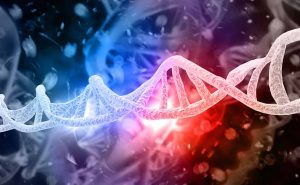Learn about the prevention of congenital abnormalities, including whether Trisomy 21 (Down Syndrome) can be prevented. Explore the role of folic acid, vaccinations, and other measures in reducing the risk of congenital conditions.
Despite the joy of having a baby coming into your life, have you ever worried whether your child will be born without any abnormalities? A representative congenital abnormality is known as Trisomy 21 (Down Syndrome).
However, congenital abnormalities are not limited to Trisomy 21 (Down Syndrome). Here, we will look at the characteristics and symptoms of major congenital abnormalities. We also explain whether Trisomy 21 (Down Syndrome) can be prevented.
What is Congenital?
“Congenital” means “present from birth.” It is used to refer to traits or diseases that one is born with. Conversely, for conditions that develop after birth, the term “acquired” is generally used.
What are Congenital Abnormalities?
Congenital abnormalities refer to physical abnormalities that are present from birth. Some can be identified before birth, while others may only be discovered after birth.
As a congenital abnormality, Trisomy 21 (Down Syndrome) is well-known, but there are various others, such as Trisomy 18 (Edwards Syndrome) and Trisomy 13 (Patau Syndrome), which will be introduced later.
The most common cause of death in children aged 0 to 4 is congenital abnormalities. While some are life-threatening, many can be managed with surgery or medication. Representative congenital abnormalities can also be tested through NIPT (Non-Invasive Prenatal Testing).
Main Symptoms of Chromosomal Disorders
Chromosomal disorders are a type of congenital abnormality caused by abnormalities in the chromosomes. They occur when there are more or fewer chromosomes than usual.
Humans typically have 46 chromosomes in total: 44 autosomes (22 pairs) and 2 sex chromosomes (1 pair). Autosomes and sex chromosomes have different roles, with sex chromosomes determining the sex of an individual.
Chromosomes contain DNA, which is folded into a double helix structure, so chromosomes can be considered as containers for storing DNA. Autosomes are numbered in order from longest to shortest, but the 21st chromosome is shorter than the 22nd chromosome.

Trisomy 21 (Down Syndrome)
Down Syndrome is also known as Trisomy 21. Normally, chromosomes exist in pairs, with two of each kind. However, in the case of Trisomy 21 (Down Syndrome), there are three copies of the 21st chromosome instead of two.
Common symptoms include decreased muscle tone and developmental delays. There may also be associated heart diseases, gastrointestinal disorders, and hypothyroidism. About half of children with these conditions have heart diseases.
Excess skin on the back of the neck, low-set ears, and upward-slanting eyes are characteristic features. During pregnancy, an ultrasound may reveal swelling at the back of the neck, which can lead to the discovery of Trisomy 21 (Down Syndrome).
However, Trisomy 21 (Down Syndrome) may not be detected until birth. It can sometimes go unnoticed immediately after birth and may only be discovered as the child grows.
The main causes of death for individuals with Trisomy 21 (Down Syndrome) are heart disease and leukemia. The average life expectancy is said to be 55 years. While the average IQ of a typical child is around 100, it is about 50 for those with Trisomy 21 (Down Syndrome). Developmental delays are common, so support from others is often necessary for school and work.
Trisomy 18 (Edwards Syndrome)
Edwards Syndrome is a congenital abnormality caused by an extra 18th chromosome. Therefore, it is also known as Trisomy 18.
It occurs in approximately 1 in 6,000 births and is characterized by underdeveloped muscles and fat, resulting in a small body. Affected individuals often appear limp due to lack of muscle tone. Other characteristic symptoms of Trisomy 18 (Edwards Syndrome) include clubfoot, where the ankle is turned inward, and clenched hands.
Other than physical abnormalities, there may also be issues with the heart, lungs, and digestive tract. Unfortunately, many babies born with Trisomy 18 (Edwards Syndrome) do not survive beyond the first week of life. The probability of living to one year is said to be less than 10%.
Trisomy 13 (Patau Syndrome)
Patau Syndrome is a congenital abnormality caused by an extra 13th chromosome. It is also known as Trisomy 13. It occurs in approximately 1 in 100,000 births and is characterized by eye development abnormalities, heart defects, and intellectual disabilities. Babies with this condition often show little movement in the womb. There may also be too much or too little amniotic fluid.
A major characteristic is abnormalities observed in the face. These may include small eyes, missing pupils, and the presence of cleft lip or cleft palate. The ears are often low-set and abnormally shaped. Severe heart abnormalities are also common, with 80% of patients having heart defects.
There is no established treatment for Trisomy 13 (Patau Syndrome), and most affected infants pass away within the first month of life.
Can Congenital Abnormalities be Prevented?
Some congenital abnormalities are said to be preventable. For example, congenital rubella syndrome can be prevented by receiving the rubella vaccine.
Congenital abnormalities can also be avoided by preventing infections from organisms such as Treponema pallidum, HIV, and the hepatitis B virus. Additionally, paying attention to the intake of nutrients like folic acid and vitamin A can help in prevention.
However, there are few effective methods for preventing chromosomal abnormalities. One could avoid advanced maternal age, as the incidence of many chromosomal abnormalities increases with maternal age.
That said, even pregnancies and births at a younger age do not guarantee the prevention of congenital abnormalities. Therefore, it can be said that some congenital abnormalities can be prevented while others cannot.
Why is Folic Acid Recommended for Pregnant Women?
You may have heard the advice to take folic acid during pregnancy. The reason folic acid is necessary during pregnancy is to prevent neural tube defects, a type of congenital abnormality.
Neural tube defects occur when the neural tube does not form properly, leading to symptoms such as walking disabilities, bowel disorders, and hydrocephalus. If folic acid intake is insufficient during early pregnancy when the neural tube is forming, the risk of neural tube defects increases.
By taking 400 μg of folic acid per day, the risk of neural tube defects can be reduced.

What is Folic Acid?
Folic acid is a type of vitamin. It is known as a nutrient involved in the synthesis of DNA and proteins. It was formerly called vitamin M or vitamin Bc. It is said to be easily deficient when dietary intake decreases or when there are issues with absorption.
When folic acid is deficient, it increases the risk of neural tube defects in the fetus and can also lead to megaloblastic anemia, neurological disorders, and intestinal dysfunction. Foods rich in folic acid include edamame, broccoli, chicken liver, and egg yolk.
Can Folic Acid Prevent Trisomy 21 (Down Syndrome)?
It is said that taking folic acid before pregnancy may help prevent Trisomy 21 (Down Syndrome). Mothers who have previously given birth to a child with neural tube defects are 5.8 times more likely to have a child with Trisomy 21 (Down Syndrome) compared to those who have not. Neural tube defects are caused by a deficiency in folic acid, so taking folic acid may help prevent Trisomy 21 (Down Syndrome).
Other Ways to Prevent Congenital Abnormalities
In addition to taking folic acid, the following can also be effective in preventing congenital abnormalities.
Vaccinations
Congenital rubella syndrome is a congenital abnormality caused by contracting rubella during pregnancy. It can lead to symptoms such as hearing loss and cataracts. It can be prevented by getting the rubella vaccination before pregnancy. Since there is a possibility of transmission from the partner to the pregnant woman, vaccination for men is also recommended.
Avoid Excessive Intake of Vitamin A and Mercury
It has been found that excessive intake of vitamin A can cause teratogenic effects, with ear abnormalities being a common example. It is recommended to obtain vitamin A from food rather than supplements.
During early pregnancy, vitamin A intake should not exceed 1,500 μg RE per day. Mercury affects the development of the fetal central nervous system. Since fish like tuna and swordfish have high mercury concentrations, it is recommended to limit intake to 50-100g per week.
Be Careful with Iodine Intake
If iodine intake is insufficient during pregnancy, it can lead to miscarriage or stillbirth, and may cause congenital hypothyroidism in the fetus. Conversely, excessive intake can also lead to hypothyroidism.
Be cautious not to consume too much iodine-rich foods like kelp and seaweed. Additionally, avoid using gargle solutions containing povidone-iodine.
Conclusion
Representative congenital abnormalities include Trisomy 21 (Down Syndrome), Trisomy 18 (Edwards Syndrome), and Trisomy 13 (Patau Syndrome). All of these are caused by chromosomal abnormalities. These congenital abnormalities can be tested through NIPT (Non-Invasive Prenatal Testing).
It has been found that taking folic acid may help prevent Trisomy 21 (Down Syndrome), so be sure to take folic acid especially before pregnancy. Taking folic acid can also reduce the risk of neural tube defects. Additionally, some congenital abnormalities can be prevented through vaccinations and diet.
【References】
- Rare Disease Information Center – Congenital
- MSD Manual Consumer Version – Overview of Congenital Abnormalities – 23. Pediatric Health Issues
- Ministry of Health, Labour and Welfare – Table 7: Number of Deaths and Mortality Rates (per 100,000 population) by Top 5 Causes of Death
- MSD Manual Consumer Version – Down Syndrome (Trisomy 21) – 23. Pediatric Health Issues
- MSD Manual Professional Version – Trisomy 18 – 19. Pediatrics
- MSD Manual Consumer Version – Trisomy 13 – 23. Pediatric Health Issues
- National Institute of Infectious Diseases – What is Congenital Rubella Syndrome?
- Japan Society of Obstetrics and Gynecology – Diet and Congenital Abnormalities
- Health Science and Healthcare Volume 16, No.2 (2016) – Does Advanced Maternal Age Increase Congenital Abnormalities? Analysis of Data on Congenital Abnormalities in Assisted Reproductive Technology
- Ministry of Health, Labour and Welfare e-Health Net – Folic Acid and Supplements – Effects on Reducing the Risk of Neural Tube Defects
- Rare Disease Information Center – Spina Bifida (Designated Intractable Disease 118)
- National Institutes of Biomedical Innovation, Health and Nutrition – Safety and Efficacy Information on “Health Foods”: Folic Acid Explanation
- Hokkaido University – Recommendations for Folic Acid Intake
- Ministry of Health, Labour and Welfare – 6.2.5. Iodine (I)
Learn about the prevention of congenital abnormalities, including whether Trisomy 21 (Down Syndrome) can be prevented. Explore the role of folic acid, vaccinations, and other measures in reducing the risk of congenital conditions.
Article Editorial Supervisor

Dr Hiroshi Oka
NIPT specialist clinic, MD
Graduated from Keio University, School of Medicine
 中文
中文























